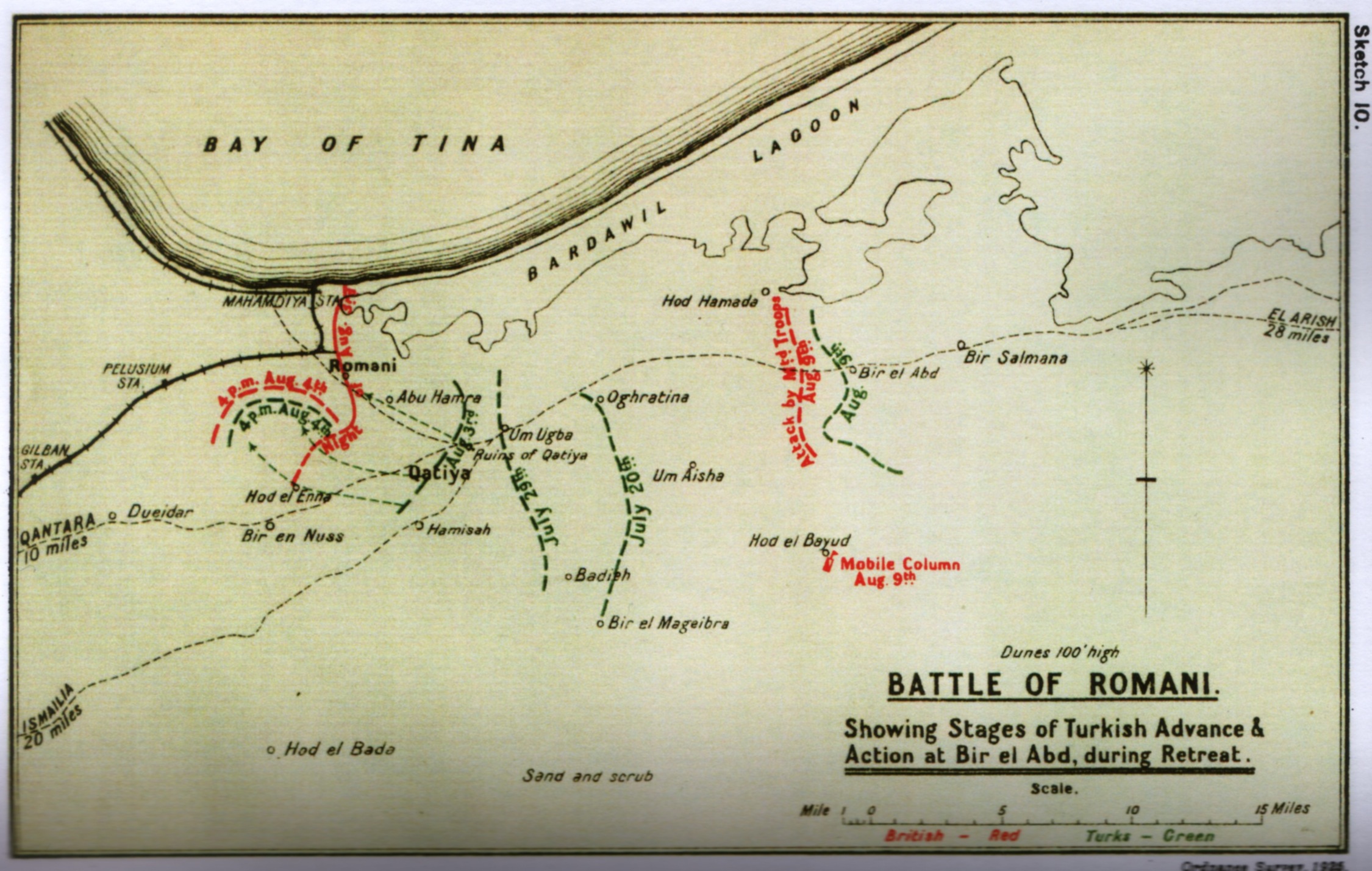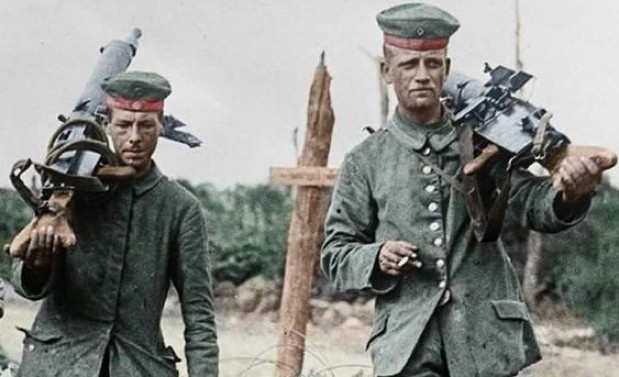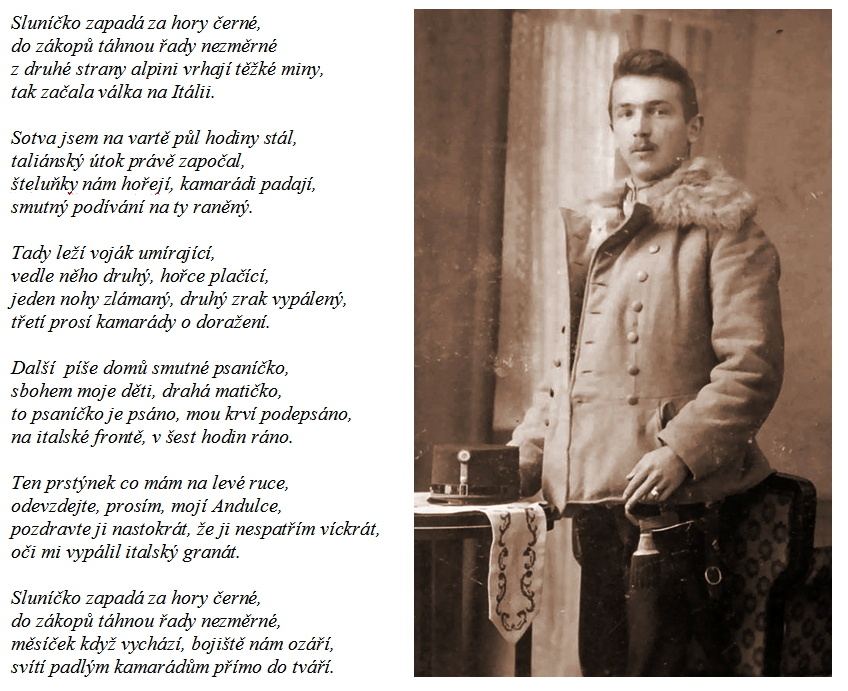
Battle of Romani, August 1916
The Battle of Romani was the last ground attack of the Central Powers on the Suez Canal at the beginning of the Sinai and Palestine campaign during the First World War. The battle was fought between 3 and 5 August 1916 near the Egyptian town of Romani and the site of ancient Pelusium on the Sinai Peninsula, 23 miles (37 km) east of the Suez Canal.





